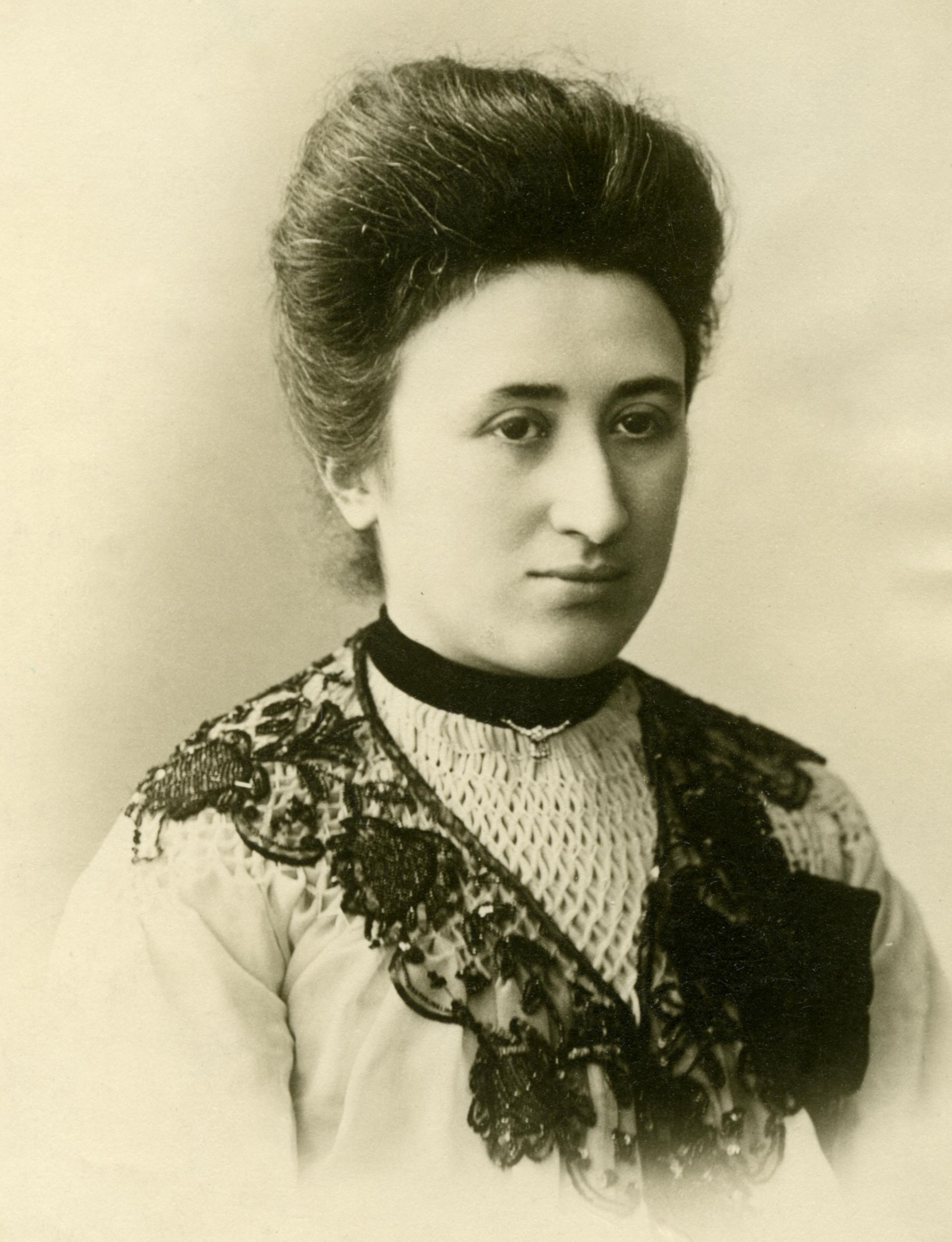Rosa Luxemburg
 mini|Rosa Luxemburg (Foto von Karl Pinkau)
Rosa Luxemburg (* 5. März 1871 als ''Rozalia Luxenburg'' in Zamość, Kongresspolen, Russisches Kaiserreich; † 15. Januar 1919 in Berlin) war eine einflussreiche Vertreterin der europäischen Arbeiterbewegung, des Marxismus, Antimilitarismus und proletarischen Internationalismus. Sie war eine Politikerin (SDKP, SPD, USPD und KPD) sowie Nationalökonomin und Publizistin.
mini|Rosa Luxemburg (Foto von Karl Pinkau)
Rosa Luxemburg (* 5. März 1871 als ''Rozalia Luxenburg'' in Zamość, Kongresspolen, Russisches Kaiserreich; † 15. Januar 1919 in Berlin) war eine einflussreiche Vertreterin der europäischen Arbeiterbewegung, des Marxismus, Antimilitarismus und proletarischen Internationalismus. Sie war eine Politikerin (SDKP, SPD, USPD und KPD) sowie Nationalökonomin und Publizistin.Zuerst wirkte sie ab 1887 in der polnischen, ab 1898 in der deutschen Sozialdemokratie. Dort bekämpfte sie von Beginn an Nationalismus, Opportunismus und Revisionismus. Sie trat für Massenstreiks als Mittel sozialpolitischer Veränderungen und zur Kriegsverhinderung ein. Sofort nach Beginn des Ersten Weltkrieges 1914 gründete sie die „Gruppe Internationale“, aus der der Spartakusbund hervorging. Diesen leitete sie als politische Gefangene zusammen mit Karl Liebknecht durch politische Schriften, in denen sie die Burgfriedenspolitik der SPD analysierte und verurteilte. Sie bejahte die Oktoberrevolution, kritisierte aber zugleich den demokratischen Zentralismus Lenins und der Bolschewiki. In der Novemberrevolution versuchte sie, als Chefredakteurin der Zeitung ''Die Rote Fahne'' in Berlin auf das Zeitgeschehen Einfluss zu nehmen. Als Autorin des Spartakusbund-Programms forderte sie am 14. Dezember 1918 eine Räterepublik und die Entmachtung des Militärs. Anfang 1919 gründete sie die Kommunistische Partei Deutschlands mit, die ihr Programm annahm, aber die von ihr geforderte Teilnahme an den bevorstehenden Parlamentswahlen ablehnte. Nachdem der folgende Spartakusaufstand niedergeschlagen worden war, wurden sie und Karl Liebknecht von Angehörigen der Garde-Kavallerie-Schützen-Division ermordet. Diese Morde vertieften die Spaltung zwischen SPD und KPD. Veröffentlicht in Wikipedia
Treffer 1 - 2
von 2
für Suche: 'Luxemburg, Rosa',
Suchdauer: 0,01s
